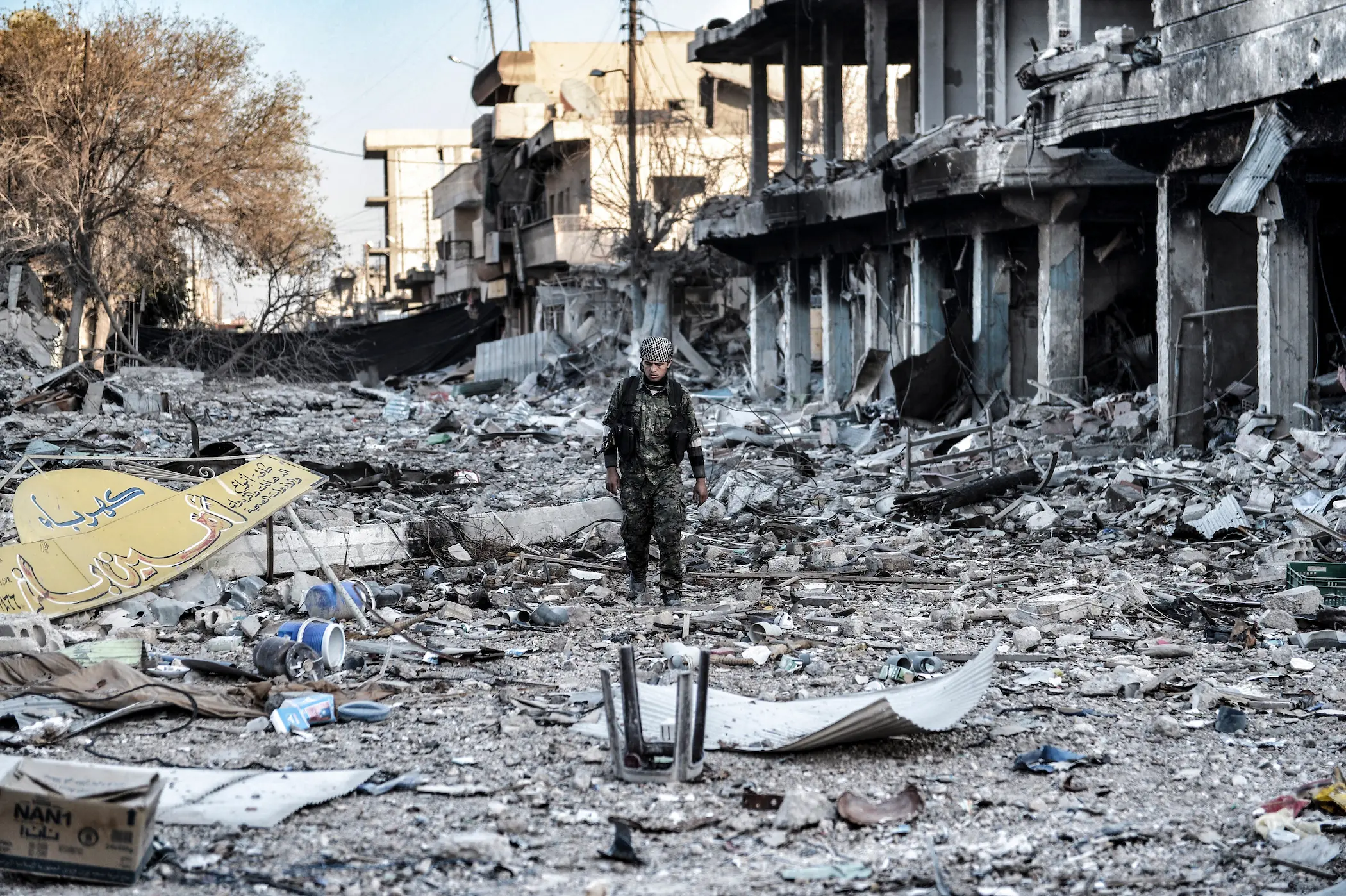While hosting approximately four million Syrian refugees, Ankara no longer maintains its previous reputation as a warm and welcoming host. A series of events have indicated a growing trend that can be described as "Anti-Arabism," while simultaneously, the historical animosity towards Jews is waning. It is suggested that the former trend may be feeding into the latter. Due to a substantial influx of migrants and a challenging economic situation, refugees of Arabic descent appear to have become scapegoats, surpassing Jews as the primary target for hate speech and hostility in the country. These two trends might be interconnected, and understanding their underlying factors and the evolution of this phenomenon demands careful consideration.
Brothers, you are not welcomed anymore!
Turkey, once known as the most welcoming to Syrian refugees, who were previously lauded as “brothers and sisters” by President Erdogan, has shifted. Syrians have found themselves in an unenviable position, attacked and accused of being the source of a worsening economic crisis. A series of anti-Arab incidents have taken place, with the most notable among them was the 2021 incident when Turkish crowds stormed into Syrian shops in Ankara in the wake of a street fight which resulted in a Syrian man being stabbed to death. Xenophobia has been on the rise and cases of murder have even been detected and instances of violence have arisen, signifying an unprecedented boiling point. Anti-immigrant sentiment among Turkish public is triggered mainly by the economic crisis and egged on by politicians uttering nationalist rhetoric capitalizing on anger and fear among the masses.
A decade ago, when Syrians were initially welcomed into Turkey, the economic landscape was markedly different from the current milieu. In 2011, the inflation rate stood at a modest 6.47%, whereas in 2022, it had soared to a staggering 72.31%. The situation was exacerbated by the rhetoric of Turkish opposition candidates during the May 2023 presidential election. For instance, in his presidential campaign, opposition leader Kilicdaroglu pledged to deport over 4 million refugees from Turkey, declaring, “I hereby declare that I will repatriate all refugees as soon as I assume power.” During the runoff, Sinan Ogan, the ousted candidate considered the kingmaker of the election, wielded the refugee issue as a condition for supporting either of the two contenders, favouring hardened policies.
While Turkey has lately become the final European nation to confront a surge in anti-immigrant sentiments, the situation is peculiar due to the enduring prevalence of hate speech and nativism, which, to some extent, distinguishes between migrants. For example, migrants from Balkan states appear to be more favourably regarded than Arabs. The question of why Arabs are singled out demands an exploration of historical narratives. Anti-Arabism is not a novel concept among Turks; its roots can be traced back to the Ottoman era, as well as to Kemalist Turkey in the 1930s, whose doctrine associated Arabs with backwardness, compelling Turkish republicans to dislodge their nascent republic from anything remotely Arab and align with European civilization. Conversely, with the eruption of the Syrian civil war in 2011, Syrian refugees were accorded a warm reception, resettled, and treated with kindness. This shift can be attributed to the popularity of then-Prime Minister Erdogan and his AKP party, who were in their “Golden Era” during the onset of the civil war in Damascus and the initial wave of migration. Erdogan’s open-door policy faced minimal resistance from the Turkish populace at that time, primarily due to his popularity and robust economic performance, making the acceptance of refugees more an easier pill to swallow. However, as these conditions frayed, particularly since 2018 when Turkey entered a period of economic recession, the situation underwent an alteration.
Arabs have become the scapegoats in Turkey, and Syrian refugees are incessantly targeted with accusatory fingers, held responsible for the deteriorating conditions in Ankara. Interestingly, this situation has not only given rise to animosity against Syrian refugees but has also enveloped all Arabs under the same category, encompassing Palestinians fleeing conflict in their homeland to wealthy Gulf tourists. This process has not only fomented violence against Arabs on Turkish soil but has also paradoxically kindled sympathy for Jews and Israelis, traditionally regarded as adversaries of the Arab world.
Fading Hostility
While hostility against Arabs is being fed, another phenomenon is on the rise. Anti-Arab sentiment in Turkey appears to be a prelude to a growing affinity for Israel. The animosity towards Arabs in Turkey is primarily directed at Syrians, yet it encompasses all Arabs, capturing Palestinians in its backlash. Those harbouring anti-Arab sentiments inevitably find themselves aligning with Israel when conflicts arise between the two parties. Jews have long been the primary target of hate speech in Turkish media. Although sympathy for Israelis has not traditionally been a notable phenomenon in Turkey, the mounting hostility towards Arabs has unintentionally driven the public to support those opposing Arab interests. Resentment, catalysed by the presence of refugees on Turkish soil, has coincided with a decline in antipathy towards Jews. This shift became more pronounced following the eruption of the economic crisis in 2018, coinciding with the rise of anti-refugee sentiments. The subsequent graph illustrates a noteworthy change: hate speech directed towards Jews is no longer predominant. While Jews still feature among the top four targets, they have descended in just one year, making way for other groups. In 2019, Syrians have assumed the top position, displacing Jews who had long held that place.
The growing tolerance towards Jews can be attributed to a confluence of factors reinforcing each other. On the political and diplomatic front, Turkish-Israeli normalization was reestablished in August 2022, primarily motivated by political considerations. Ankara’s interest in normalization centred not on Tel Aviv per se but primarily aimed at advancing Turkey’s standing on Capitol Hill, particularly concerning the sale of F-16 fighter jets. Developments in the South Caucasus region have also played a role. Turkey and Israel hold distinct interests in the region, with Turkey striving to expand its influence through economic, logistical, military, and energy means, while Israel’s interests are less strategic primarily focusing on arms sales, energy markets, and, to some extent, creating a source of tension for Iran. Azerbaijan serves as a point of convergence for the two states, where competition may arise but cooperation appears more likely. These dynamics may appear distant from the general public, seemingly taking place and held inside officials’ offices. Nevertheless, high politics cannot remain trapped within the offices of politicians; its reverberations extend to the streets and profoundly influence the attitudes and beliefs of the people.
Accordingly, while Jews have had their fair share of animosity in Turkish society for years, a shift towards replacing Jews with Arabs has been on its way for some years now. Reasons range from dire economic situations to decaying Erdoganism within the Turkish political sphere. Questions around whether the two trends have been feeding into each other are legitimate and answering them helps in understanding dynamics within Turkish society which might lead to bigger changes happening within Turkish higher politics.
References
Cook, Steven A. “How Israel and Turkey Benefit from Restoring Relations.” Council on Foreign Relations, 2022. https://www.cfr.org/in-brief/how-israel-and-turkey-benefit-restoring-relations.
Michaelson, Ruth, and Deniz Barış Narlı. “Turkish Opposition Stirs up Anti-Immigrant Feeling in Attempt to Win Presidency.” The Guardian, May 28, 2023. https://www.theguardian.com/world/2023/may/28/turkey-election-candidates-eye-surge-of-nationalism-before-runoff-vote
Qiblawi, Tamara. “Turkey’s Opposition Faces an Uphill Battle in Runoff with Erdogan.” CNN, May 16, 2023. https://edition.cnn.com/2023/05/15/europe/turkey-election-opposition-intl/index.html.
Solomon, Esther. “Palestinians Were Spared Turkey’s Rising Anti-Arab Hate. until Now.” Haaretz.com, July 16, 2019. https://www.haaretz.com/world-news/2019-07-16/ty-article/.premium/palestinians-were-spared-turkeys-rising-anti-arab-hate-until-now/0000017f-f76a-ddde-abff-ff6ff4ed0000?lts=1696852720852.
Staff, The New Arab. “Kuwaiti Tourist Assaulted in Turkey amid Anti-Arab Racism.” The New Arab, 2023. https://www.newarab.com/news/kuwaiti-tourist-assaulted-turkey-amid-anti-arab-racism.
Tokmajyan, Armenak. “Middle Eastern Linkages Are Shaping the South Caucasus – Carnegie …” Carnegie Middle East Center, 2023. https://carnegie-mec.org/diwan/89881.
Trends, Macro. “Turkey Inflation Rate 1960-2023.” MacroTrends, 2022. https://www.macrotrends.net/countries/TUR/turkey/inflation-rate-cpi.
Vakfı, Hrant Dink. “Hate Speech and Discriminatory Discourse in Media 2019 Report.” Anasayfa – Hrant Dink Vakfı, 2019. https://hrantdink.org/en/asulis/publications/75-media-watch-on-hate-speech-reports/2727-hate-speech-and-discriminatory-discourse-in-media-2019-report.
Vakfı, Hrant Dink. “Medyada Nefret Söyleminin İzlenmesi.” Anasayfa – Hrant Dink Vakfı, 2018. https://hrantdink.org/tr/asulis/faaliyetler/projeler/medyada-nefret-soylemi.












Comments